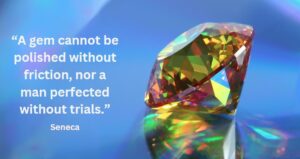Conflict is like the unwelcome guest at every workplace Christmas party – inevitable but manageable! When ignored, it can turn a celebration into a disaster.
Here’s a quick guide on how to keep the peace and avoid workplace drama:
- Face the Music: Dodging conflict is like procrastinating on paying your bills – it only gets worse with time. Tackle issues head-on instead of letting them simmer.
- Don’t Tolerate Bad Behaviour: If your workplace feels like a drama-filled reality show, it’s time for a change. Stamp out bad behaviours, encourage open talk, and watch the drama fade away.
- Leader to the Rescue: Leaders, don’t be MIA when conflicts arise. Jump in, sort things out, and show your team you’ve got their backs. Superheroes wear capes; leaders solve conflicts!
- Team > Me: Solo success is great, but team victories are better. Encourage a culture where everyone cheers for the team, not just themselves. It’s a win-win situation!
- Learn, Adapt, Thrive: If you’ve ever stumbled and learnt from it, you know what’s needed here. Reflect on past conflicts, learn from them, and gear up for a drama-free future.
Leaders, turn conflict management into your secret weapon! Invest in training programs that teach your team effective communication and negotiation skills. It’s not just about surviving conflicts; it’s about thriving in the midst of them. Let’s transform workplace clashes into opportunities for growth and success!
